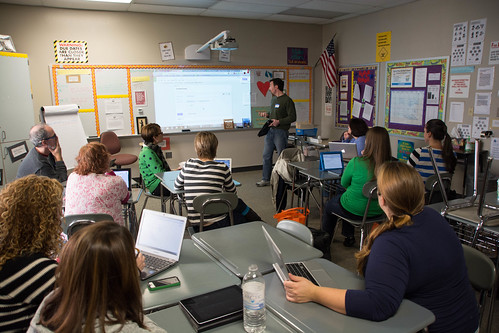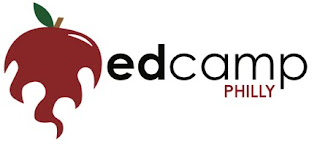Up first, part 1: 11 facts about me:
- I run far too many blogs. Or, at least, I "have" too many blogs that I update far too infrequently.
- My husband and I are both high school teachers.
- I never, ever, would have considered myself a cat person, yet I've lived with two cats for 9 years.
- I am not interesting enough for 11 things about me.
- One of the things I miss most about my pre-kids life is the ability to lounge in bed reading a good book. It's definitely not for me to go BACK to bed to do this, and I'm usually the one who gets up when they do.
- I HATE to be cold, but....
- I miss going skiing. I haven't been since 2000, and keep trying to make plans that often fall through.
- I would love to live in another state.
- I've been abroad twice--first, on a trip called "American Music Abroad," which toured several countries for sometimes hours, and second on a trip sponsored by the Lions Club in which I was essentially an exchange student, living in different people's homes around Germany.
- I traveled with my college pep band to two NCAA Tournaments--first to Chicago (I recall that being a whirlwind trip) and second to Charlotte.
- I made a "bucket list" for my 30s. I'm 35 and have only done one of the things on that list.
Part 2: 11 Questions from Mrs. Baker:
- What is your favorite type of cookie?
My first thought is peanut butter cookies--either the kind where you take a fork and crosshatch or the kind with a kiss on top. My must-buy Girl Scout cookies are the red box and the orange box; I have no idea the cookie names but they're both peanut butter. - As a cook, what is your signature dish?
I don't really have a "signature" dish. Despite enjoying cooking, there's very few recipes committed to memory. Do grilled cheese or pita pizzas count? But among the things made most frequently around here are enchiladas, macaroni and cheese, and crock-pot lasagna. - What was your best Christmas/Birthday/Holiday gift ever (either given to you or you gave to someone else)?
I don't know if this is the "best," but it's the most storied in my marriage. Before we were married or engaged... heck, we were still fairly new in dating as it went... I was inspired by a friend who went really BIG when it came to gifts for her fiance. So, I decided to buy my then boyfriend a trip for us both to Hawaii. He'd been before (but never with me!) and I had not, the price was great for right after school, so we went! He doesn't let me live this one down, since he calls it a gift for him but for me, but if the timing had worked better, it could have been spun as a visit to his sister, who moved around the corner from our hotel a few months after our trip. - Why was that the best gift ever?
See above! - What is your favorite tech tool?
Google Drive keeps me way more organized than I used to be. - Oxford comma, necessary or superfluous?
NECESSARY!
- What is your favorite book?
TOUGH choice! I really couldn't tell you my one favorite of pretty much anything, and with so many great books, this is impossible to choose. I love a great picture book--Mo Williems's books are readable, engaging and beautiful, and Love You Forever always brings me to tears. A great piece of nonfiction that's stuck with me is Zeitoun. Ready, Player One was also in audiobook for me, but was probably the best book I've read this year. - If you could have 3 wishes, what would they be?
To see the results of the parenting choices we're making now--who are our boys in 15 and 30 years?
More time; I am not successful at this working parent thing, on top of being really hard-on-myself. There's so much I want to do and see and be, but I cannot figure out how to make it all fit.
More wishes? No? Ixnay? Well then, I'd wish for something to help someone who couldn't help me in return. I'd wish to help the man who lives under the bridge, the man about whom I think every time it gets so cold. I'd eradicate the extreme poverty in this country. - If you were to name one piece of clothing that describes you, what would you say?
Bill Cosby sweater - Would you rather visit the world 100 years into the past or 100 years into the future?
Ooooo, good question. A tough choice, but I think I would want to visit the future. This may be due to Back to the Future 2 being my favorite in the series, but in reality, the news is grim and I've read a lot of dystopian fiction; I want to see the world my grandchildren will encounter to best prepare them and also to assuage my anxious mind. - What's the kindest act you have ever seen done (either to/by you or another)?
It's so hard to think of kind acts when I try to be intentional in doing them, mostly because we encounter so many very public, very huge kindnesses via the media. The heroic acts of first responders during Hurricane Sandy is the first thing that I think of for this question, but these are things I can never do. But since having children, I've seen how very kind the world is--the people who have offered help to a child who appears to be lost, the random gifts strangers have given to my boys, the people who hand over their tickets at an arcade--and these are the types of kindnesses of which we are all capable, little kindnesses that restore all of our faith that this is a good time and a good place.
That was tough, and boy do I seem hokey.
Part 3--Nominate Other Bloggers
Well, by the time I'm getting around to this, everyone who I might nominate has probably already done this. So, if you're the one person who reads this thing of mine, feel free to play and let me know!
Part 4--Questions for YOU:
- What's your favorite outdoor activity? What do you love about it?
- What is the most beautiful sight you've ever seen? Describe the scene.
- Would you be 16 again? Why or why not?
- What's your favorite holiday and why?
- If you could live in any era of the past, when would you choose and why?
- What energizes you?
- How would you spend an hour with no responsibility?
- How would you spend $100 with no strings attached?
- Describe your best Halloween costume.
- City or country?
- Can you currently play an instrument? Which?
















